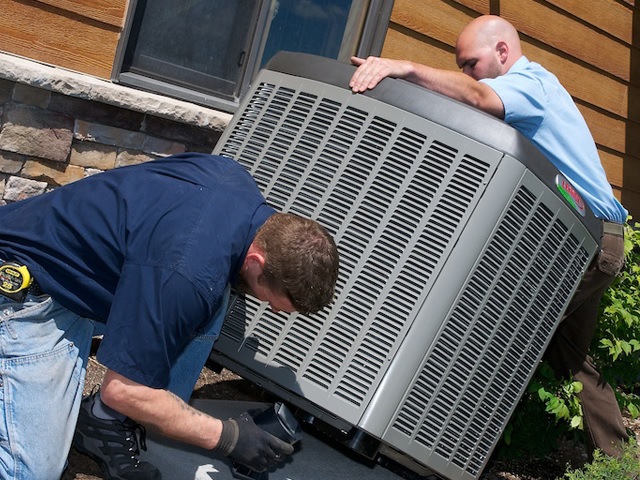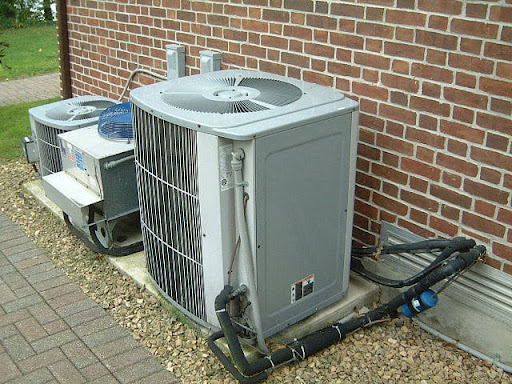In the scorching heat of summer or the freezing cold of winter, air conditioning systems become our best friends, providing comfort and relief from extreme temperatures. However, with the variety of options available in the market, choosing the right air conditioning system can be daunting. Each type comes with its own set of pros and cons, catering to different needs and preferences. In this comprehensive guide, we will explore the various types of air conditioning systems, along with their advantages and disadvantages, to help you make an informed decision. Are you looking for more information regarding ac repair? Then visit their page to learn more.
1. Central Air Conditioning Systems
Pros:
- Efficient Cooling: Central air conditioning systems are known for their ability to efficiently cool entire homes or buildings.
- Consistent Temperature: They maintain a consistent temperature throughout the space, ensuring comfort in every room.
- Quiet Operation: Modern central AC units operate quietly, minimizing noise disruptions.
- Improved Air Quality: Many central AC systems come with built-in air filtration systems, removing dust, allergens, and pollutants from the air.
Cons:
- Costly Installation: Installation costs for central air conditioning systems can be relatively high, especially if ductwork is required.
- Space Requirements: They require ample space for installation, including space for the outdoor unit and ductwork.
- High Energy Consumption: Central AC systems can lead to high energy bills, particularly if not properly maintained or if the home is poorly insulated.
2. Window Air Conditioning Units
Pros:
- Affordability: Window AC units are typically more affordable than central air conditioning systems, making them a budget-friendly option.
- Easy Installation: They are relatively easy to install and can be a good option for renters or those looking for a temporary cooling solution.
- Individual Control: Each unit provides individual control over the temperature of the room it serves.
- Compact Size: Window AC units are space-saving, ideal for small apartments or rooms with limited space.
Cons:
- Limited Cooling Capacity: Window units are suitable for cooling single rooms or small spaces and may not be sufficient for larger areas.
- Aesthetic Concerns: Some people find window AC units aesthetically unappealing, as they protrude from the window and obstruct views.
- Noise Levels: Window AC units can be noisy, especially older models, which may cause disruptions during sleep or quiet activities.
3. Ductless Mini-Split Systems
Pros:
- Flexibility: Ductless mini-split systems offer flexibility in terms of installation, allowing for zoning and individual temperature control in different areas of the home.
- Energy Efficiency: They are highly energy-efficient, as they do not suffer from energy losses associated with ductwork.
- Easy Installation: Installation is relatively simple compared to central AC systems, requiring only a small hole for refrigerant lines.
- Quiet Operation: Ductless mini-split systems operate quietly, providing a comfortable environment without noise disturbances.
Cons:
- Upfront Cost: While ductless mini-split systems can save money in the long run due to energy efficiency, the initial cost of purchase and installation can be higher than other options.
- Aesthetic Impact: The indoor units of ductless mini-split systems may not suit everyone’s aesthetic preferences, as they are visible within the living space.
- Regular Maintenance: Like all air conditioning systems, ductless mini-splits require regular maintenance to ensure optimal performance and longevity.

4. Portable Air Conditioners
Pros:
- Portability: Portable AC units can be moved from room to room, providing cooling wherever needed.
- Easy Installation: They require minimal installation, usually just needing to be plugged into an electrical outlet and positioned near a window for exhaust.
- Affordability: Portable AC units are often more affordable than other types of air conditioning systems.
- No Permanent Installation: They do not require permanent installation or modifications to the structure of the building, making them suitable for renters.
Cons:
- Limited Cooling Capacity: Portable AC units are designed for cooling small to medium-sized spaces and may struggle to adequately cool larger areas.
- Noisy Operation: Some portable AC units can be noisy, particularly when running at higher fan speeds.
- Exhaust Hose: The need for an exhaust hose to vent hot air outside can be inconvenient and may limit placement options within a room.
Conclusion
Choosing the right air conditioning system involves considering factors such as budget, space requirements, cooling capacity, and energy efficiency. Each type of system has its own advantages and disadvantages, and the best choice depends on individual needs and preferences. Whether opting for the efficiency of a central air conditioning system, the affordability of window units, the flexibility of ductless mini-splits, or the portability of portable AC units, homeowners can find a solution that suits their lifestyle and budget.




